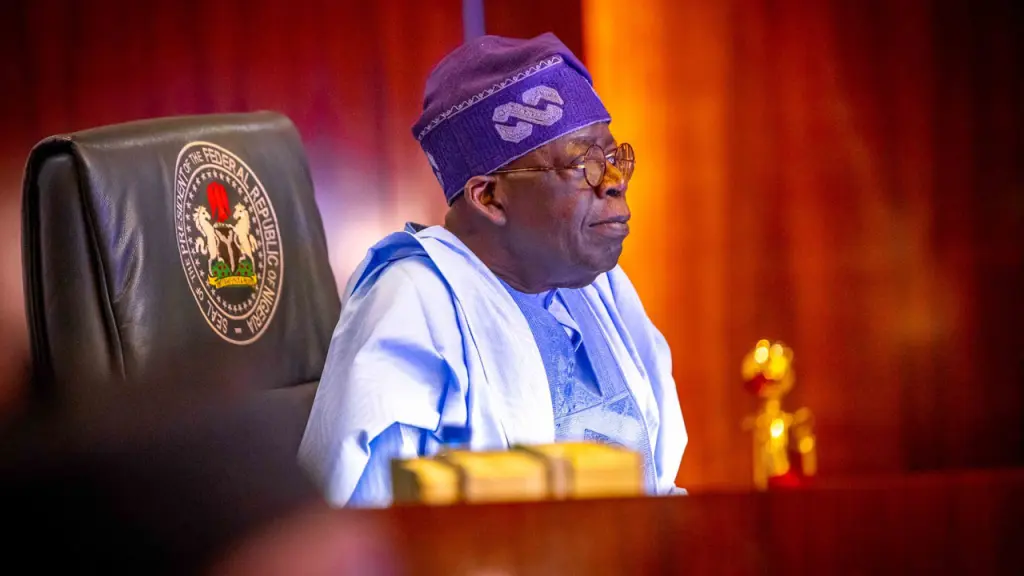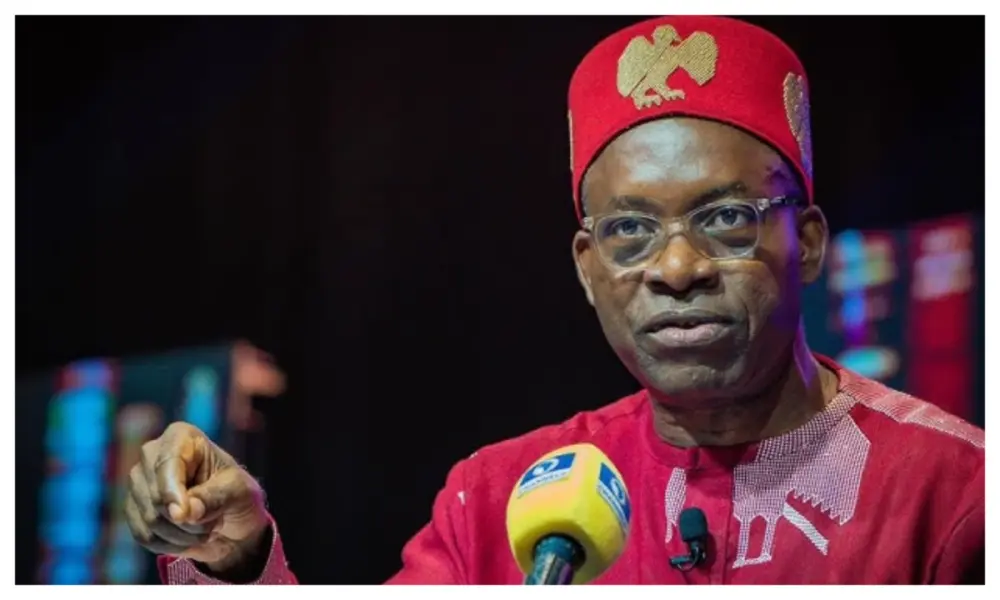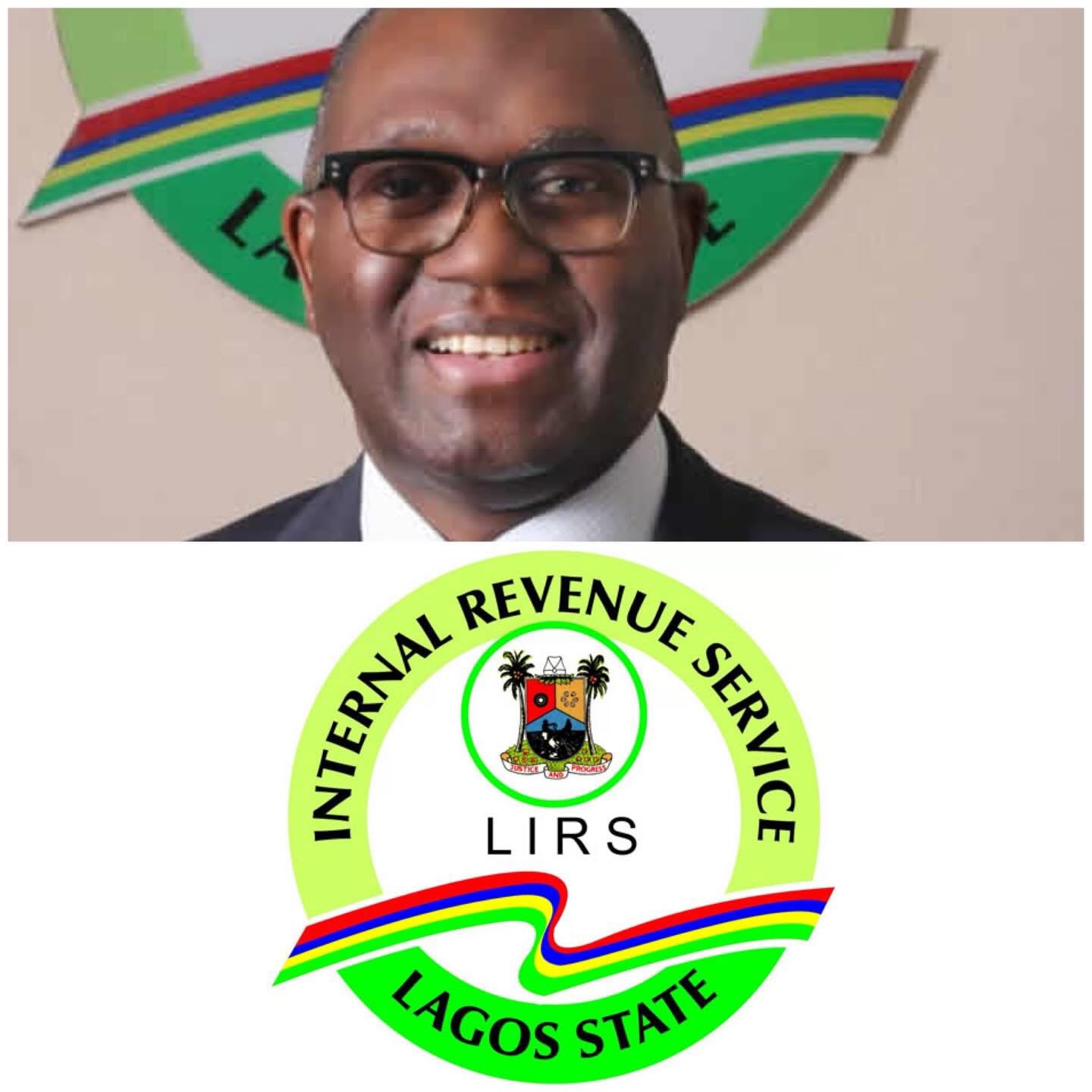Business
Tinubu’s ban on foreign goods major boost for Nigerian economy — Stakeholders

Stakeholders have backed President Bola Ahmed Tinubu’s ban on foreign goods, noting that it would boost Dangote Refinery, Innoson vehicles manufacturing, and other indigenous businesses amid the slipping Nigerian economy.
The Chief Executive Officer of the Centre for the Promotion of Private Enterprise (CPPE), Muda Yusuf, the CEO of SD & D Capital Management, Gbolade Idakolo and the Board of Trustees Chairman of the Coalition of South-South Chambers of Commerce and National President Petroleum Products Retail Owners Association of Nigeria, Billy Gillis-Harry, made their stance known in separate interviews with Ekwutosblog on Monday.
This is following the decision by the federal executive council chaired by President Bola Ahmed Tinubu at the presidential villa on Monday to ban foreign goods.
Ekwutosblog reports that one of the decisions reached by the FEC was a ban on the procurement of foreign goods or services by federal government ministries, departments, and agencies.
Announcing the development, the Minister of Information and National Orientation, Mohammed Idris, told journalists at the presidential villa that the initiative, tagged the Nigeria First Policy, is aimed at strengthening the country’s economy by prioritising locally manufactured goods and services.
“The Nigeria First policy is expected to become the cornerstone of the administration’s economic strategy, especially as the government pushes forward with its industrialisation agenda and import-substitution goals,” he said.
Minister Idris said to give legal backing to the policy, the Attorney General of the Federation and Minister of Justice has been instructed to draft an Executive Order.
With the policy in place, domestic manufacturers and producers such as Dangote Refinery, Sugar, Innoson Motors, and others would now have an edge over their foreign competitors.
By implication, the policy, if drafted into an executive order and implemented, would further lead to a drastic drop in import bills, which stood at N16.6 trillion in the last quarter of 2024.
The policy drive comes as the International Monetary Fund’s World Economic Outlook estimates Nigeria’s gross domestic product at $253 billion based on current prices this year, lagging behind energy-rich Algeria at $267 billion, Egypt at $348 billion, and South Africa at $373 billion.
CPPE calls for implementation by FG, states
CPPE CEO has urged that the implementation of the ban on foreign goods or services be done across the federal government and states.
According to Yusuf, the policy would have a multiplier effect on Nigeria’s gross domestic product and conserve foreign exchange.
He added that the policy should be broadened to include a ban on foreign services.
“One of the ways we can help the revitalisation of the economy is to prioritise what is made domestically.
“It helps to boost Nigeria’s gross domestic product, create more jobs, create a very considerable multiplier effect, and help to conserve foreign exchange.
“It has a lot of benefits if the country can improve on patronage of what is produced locally.
“The procurement policy of the government will drive patronage of goods produced locally. This procurement policy should not only be at the federal level but also at the subnational level. There are not only goods but also services.
“We have a situation where service imports could be as high as $10,000 to $15 billion annually.
“We should also look at the import situation for services, not just goods.
“We have young people who are doing well in information technology, software development, creative advertising concepts, and others.
Let’s ensure that we have a policy that encourages the patronage of our professionals.
“Also, for goods, things that are produced locally should be prioritised. Things like furniture. We have no business importing furniture into the country.
“We are producing enough petrol products. Why are we still importing petroleum products?
“The scope of the policy should be broadened to cover some elements of trade policy beyond procurement. It should cover some elements of trade policies. So that we can have some measures of protection for our manufacturers.
“The country has no reason to import generic pharmaceutical products or uniforms.
“I am not saying we should go extreme like in the United States of America.
“What is most important is the implementation because we had similar policies like this before that were not implemented effectively,” he stated.
Nigeria’s economy will soar with ban on foreign goods — Idakolo
On his part, Idakolo said the policy, if implemented, would make Nigeria’s economy flourish.
He noted that the policy will lead to reduced use of foreign exchange for imports and bring down the strain on the country’s currency, the naira.
“This policy is expected to yield positive results because it will strengthen local production and reduce importation of foreign goods, thereby reducing the strain on the naira.
“This policy will help the country retain more foreign currency that would have been utilised for importation.
“Nigeria reported a balance of trade surplus in 2024, a feat that has not been achieved in the past 10 years, and this is largely due to reduced importation of foreign goods and increased export of local production.
“This trade surplus can be sustained in 2025 if this policy is properly implemented.
“This policy is expected to be a game changer that will eventually strengthen the naira,” he told DAILY POST.
Ban on foreign goods may propel Nigeria to become world power — PETROAN, Gillis-Harry
Similarly, the national president of the Petroleum Retailers Outlets Owners Association of Nigeria backed the FG’s decision to ban foreign goods.
He noted that every Nigerian must ensure that the policy is implemented from top to bottom.
“This is the best news I have heard in my 65 years of being in Nigeria.
“I encourage it and endorse it as Board of Trustees Chairman of the coalition of South-South Chambers of Commerce and National President Petroleum Products Retail Owners Association of Nigeria.
“Let’s have the courage to make sure that this is obeyed from top to bottom, from the presidency to the least Nigerian.
“Sacrifices need to be made for Nigeria to get out of its current economic quagmire.
“Nigeria will be a world power starting from this policy,” he stated.
Business
Soludo takes over Onitsha main market as IPOB declares compulsory sit-at-home

The Governor of Anambra State, Prof Chukwuma Soludo has announced that his government will take over the running of Onitsha Main Market.
The governor had last Monday visited the market and also announced a one week closure over the continued adherence to sit at home protest by traders in the market.
The closure had generated a lot of tension, leading to protests by the traders, while the governor stuck to his gone, insisting that the market will remain closed for one week. He also held a meeting with the leaders of the market yesterday, where he presented them with two options.
Though it was a closed door meeting, which held at the Light House, Awka, a source in the meeting told THISDAY that the traders chose to open their shops on Monday, against an earlier option of demolishing and remodelling the market.
The source said: “The governor gave them two options. The first included; they will resume full trading activities on Mondays, mark attendance as required, while he regenerate and reorganise the market, demolish all illegal structures and plazas and create proper spaces and car parks. The second includes; To continue with Sit-at-Home on Mondays and risk the demolition of the market and use two-years for its reconstruction to restore it to its original master plan.
“The governor told them that restoring parking facilities in Main Market is an emergency, and any illegal structure erected at the park would be demolished soonest.”
It was gathered that the traders choose the first option, which will involve them opening on Monday, and giving the governor the go ahead to remove illegal structures to make way for wider roads in the market and restoring its packing space.
During the meeting, the governor told the traders that a committee will be set up to rectify all occupants of shops in the market, and that this will commence work soon, insisting that the government needs to know those who are trading in its market.
The governor was also said to have rejected a plea for the market to be opened on Saturday, insisting it can only be opened on Monday, when their compliance will again be re-accessed.
“The traders agreed to the terms, and will on Monday reopen the market to recommence business,” the source said.
Meanwhile, secessionist group, Indigenous People of Biafra (IPOB) has declared what it called Biafra-wide solidarity lockdown which is to hold on Monday in solidarity with Onitsha traders and to demand for Mazi Nnamdi Kanu’s immediate release.
A press release by the group’s publicity secretary, Mr Emma Powerful said the total shutdown across Biafraland is a direct, peaceful, and unified response to the shutting down of Onitsha Main Market for one week by Soludo.
The release said: “We remind Governor Soludo and his Abuja sponsors that the Monday sit-at-home originated as a peaceful protest demanding the unconditional release of Mazi Nnamdi Kanu, the very cause that has galvanized global attention to Biafra’s quest for self-determination.
“Attempts to twist this into “economic sabotage” or “criminality” will fail. The markets thrived during Christmas Mondays without incident, proving that voluntary compliance stems from genuine solidarity, not fear. Soludo’s escalation only exposes his desperation to provoke confrontation at a time when Biafra’s international profile is rising and diplomatic efforts are gaining traction.
“On Monday, February 2, 2026, we call on all Biafrans traders, transporters, banks, schools, civil servants, and every sector across Anambra, Abia, Imo, Enugu, Ebonyi, and beyond to observe this solidarity strike peacefully.
“Remain indoors, refrain from all commercial and public activities, and demonstrate to the world our disciplined resolve. This is not about disruption for its own sake; it is about standing with Onitsha traders who are being punished for demanding justice, and reaffirming that no governor can coerce free citizens into abandoning their rights or their solidarity.”
Business
BUA Chairman Is My Ex-Husband – Tinubu’s Minister Opens Up On Past Secret With Abdul Samad Rabiu

Nigeria’s Minister of Art, Culture and the Creative Economy, Hannatu Musawa has opened up about her former marriage to BUA Group chairman Abdul Samad Rabiu, describing it as a meaningful and life-shaping experience.
In a conversation on the MIC On Podcast with Channels Television journalist Seun Okinbaloye, Musawa reflected on her bond with Rabiu, saying their connection has remained strong despite their separation.
She explained that their relationship has evolved into one grounded in family ties, mutual respect, and continued support.
Musawa shared that although they are no longer married, they remain close and involved in each other’s lives.
She also pointed out the lasting connection between their families, noting that her daughter, Khadija, was named after Rabiu’s grandmother, showing the enduring link between them.
The minister described her time with Rabiu as one of the most memorable periods of her life.
She stated that there is no bitterness between them and that she will continue to support him in his endeavors, maintaining respect and care for their shared history.
She said: “We love each other because you love your family, obviously. But Samad is my brother. He’s my family. That’s what he is. And I’m his sister and his family, too. The marriage of the greatest experiences I’ve ever had.
“He is my ex-husband, but we are still family. We juggle coming from a background where, once you’re joined together, you continue to participate in each other’s lives. And so, we were married, and now we are just family.
“My daughter Khadija was named after Samad’s grandmother.
“We continue to share a deep respect and a love, and more than anything, support for each other. I’ll continue to be his greatest cheerleader.”
Abdul Samad Rabiu leads BUA Group, a Nigerian conglomerate with investments in cement, sugar, and other industries, and is regarded as one of the country’s leading business figures.
Business
LIRS reiterates January 31st deadline for employers’ Annual Tax returns filing

The Lagos State Internal Revenue Service (LIRS) has reiterated the statutory deadline of 31st January 2026 for all employers of labour in Lagos State to fulfil their statutory obligation to file their annual tax returns for the 2025 financial year.
In a statement issued on Thursday, January 19, the Executive Chairman of LIRS, Dr Ayodele Subair, reminded employers that the obligation to file annual returns is in accordance with the provisions of the Nigeria Tax Administration Act 2025 (NTAA).
Dr Subair explained that employers are required to file detailed returns on emoluments and compensation paid to their employees, as well as payments made to their service providers, vendors and consultants, and to ensure that all applicable taxes due for the year 2025 are fully remitted. He emphasised that filing of annual returns is a mandatory legal obligation, and warned that failure to comply will result in statutory sanctions, including administrative penalties, as prescribed under the new tax law.
According to Section 14 of the Nigeria Tax Administration Act 2025 (NTAA), employers are required to file detailed annual returns of all emoluments paid to employees, including taxes deducted and remitted to relevant tax authorities. Such returns must be filed and submitted not later than January 31 each year.
Dr Subair stated
“Employers must prioritise the timely filing of their annual income tax returns. Compliance should be part of our everyday business practice. Early and accurate filing not only ensures adherence to the law as required by the Nigerian Constitution, but also supports effective revenue tracking, which is important to Lagos State’s fiscal planning and sustainability.”
He further noted that in Lagos State, electronic filing via the LIRS eTax platform remains the only approved and acceptable mode of filing, as manual submissions have been completely phased out. This measure, he said, is aimed at simplifying and standardising tax administration processes in the State.
Read more in comments section
-
Business1 year ago
US court acquits Air Peace boss, slams Mayfield $4000 fine
-

 Trending1 year ago
Trending1 year agoNYA demands release of ‘abducted’ Imo chairman, preaches good governance
-

 Politics1 year ago
Politics1 year agoMexico’s new president causes concern just weeks before the US elections
-

 Politics1 year ago
Politics1 year agoPutin invites 20 world leaders
-

 Politics1 year ago
Politics1 year agoRussia bans imports of agro-products from Kazakhstan after refusal to join BRICS
-
Entertainment1 year ago
Bobrisky falls ill in police custody, rushed to hospital
-
Entertainment1 year ago
Bobrisky transferred from Immigration to FCID, spends night behind bars
-
Education1 year ago
GOVERNOR FUBARA APPOINTS COUNCIL MEMBERS FOR KEN SARO-WIWA POLYTECHNIC BORI













